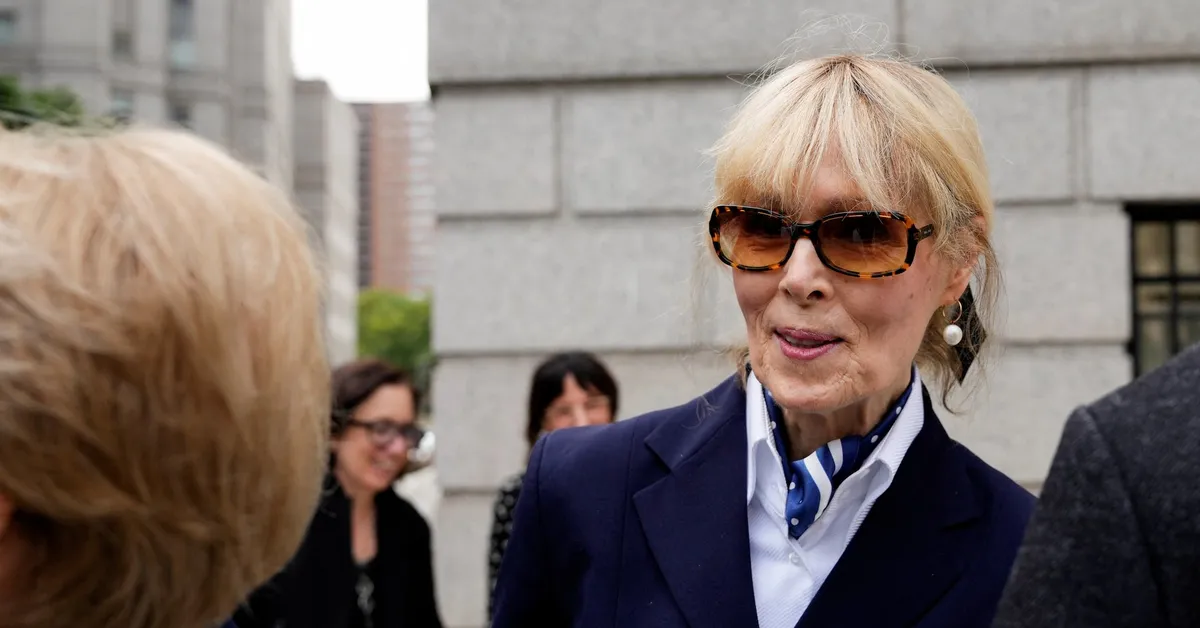
A federal appeals court in New York has made a significant ruling regarding former President Donald Trump, upholding an $83.3 million jury verdict awarded to writer E. Jean Carroll. This verdict stems from Trump's denial of Carroll's rape claim in 2019, which the court found has severely damaged her reputation.
On September 8, 2023, the 2nd U.S. Circuit Court of Appeals in Manhattan rejected Trump's appeal to overturn the jury's decision. Trump's defense argued that he should be granted presidential immunity for his statements made while in office. However, the court found Trump's behavior, particularly in the lead-up to the trial, to be increasingly aggressive and damaging to Carroll's reputation.
The unanimous three-judge panel, in their unsigned decision, emphasized the "degree of reprehensibility" of Trump's actions, labeling it as "remarkably high" and possibly unprecedented. This ruling follows a separate jury decision in May 2023, which found Trump liable for sexual abuse and defamation, resulting in a $5 million award to Carroll.
These verdicts are part of a broader array of legal troubles that Trump has faced since leaving the White House in 2021. Despite denying any wrongdoing, Trump has characterized his ongoing courtroom battles as politically motivated attacks designed to undermine his 2024 presidential campaign.
In addition to the Carroll cases, Trump is currently appealing other legal setbacks, including a criminal conviction related to falsifying records and a fraud ruling in a civil lawsuit led by New York Attorney General Letitia James concerning his family business. Although Trump has not received prison time for the criminal conviction, he successfully persuaded a New York state appeals court to overturn a substantial penalty in the civil case.
In response to the appeals court ruling, Trump's lawyers expressed confidence, stating that "President Trump will keep winning against Liberal Lawfare," emphasizing his focus on his mission to Make America Great Again.
Conversely, E. Jean Carroll's attorney, Roberta Kaplan, expressed optimism about moving forward in the legal process, stating, "We look forward to an end to the appellate process so that justice will finally be done."
The controversy began when Carroll accused Trump of sexually assaulting her in a Bergdorf Goodman dressing room in the mid-1990s. Trump first publicly denied the allegations in June 2019, infamously stating that Carroll was "not my type" and suggesting that she fabricated the story to promote her memoir, What Do We Need Men For?. He reiterated his denial in a Truth Social post in October 2022, which ultimately contributed to the $5 million verdict against him.
The $83.3 million award includes $18.3 million for emotional and reputational damages, in addition to $65 million in punitive damages. The appeals court found this amount justified given the "extraordinary and egregious facts" surrounding Trump's conduct, which they described as involving malice and deceit over a five-year period.
Trump's legal team also argued that a U.S. Supreme Court ruling in July 2024, which provided him with significant criminal immunity, should extend to Carroll's civil case. They contended that Trump's comments about Carroll were made in the capacity of his presidential role, and denying him immunity could jeopardize the independence of the Executive Branch. However, the appeals court maintained that Trump's statements implied Carroll's accusations were false and were rightly excluded from his testimony.
In June, Carroll released a memoir titled Not My Type: One Woman vs. a President, detailing her legal battles against Trump. Her continued advocacy highlights the ongoing conversation surrounding accountability and justice in cases of sexual assault.
This ruling serves as a critical chapter in the ongoing legal saga involving Donald Trump, reflecting the complexities of the intersection between politics, personal conduct, and the legal system.